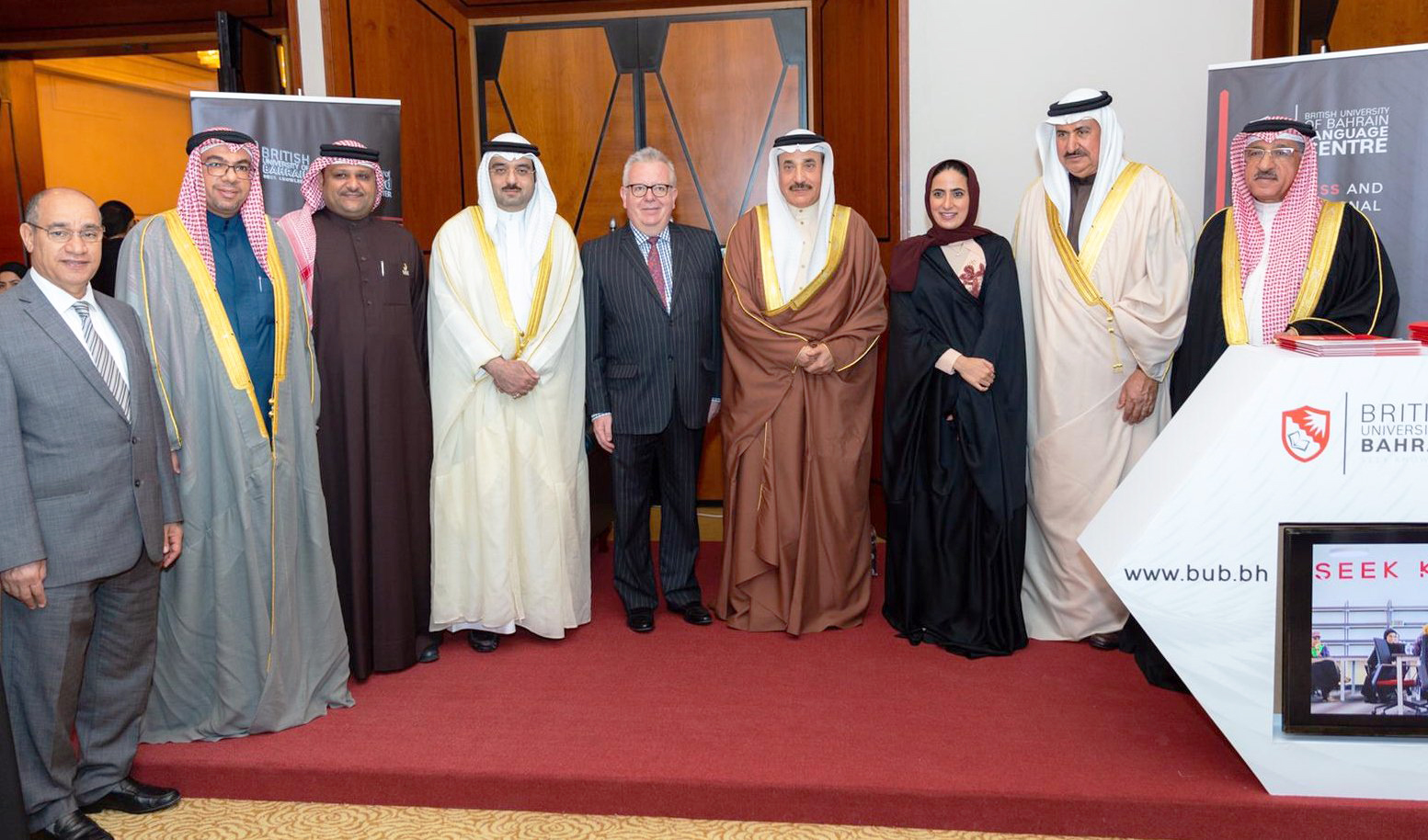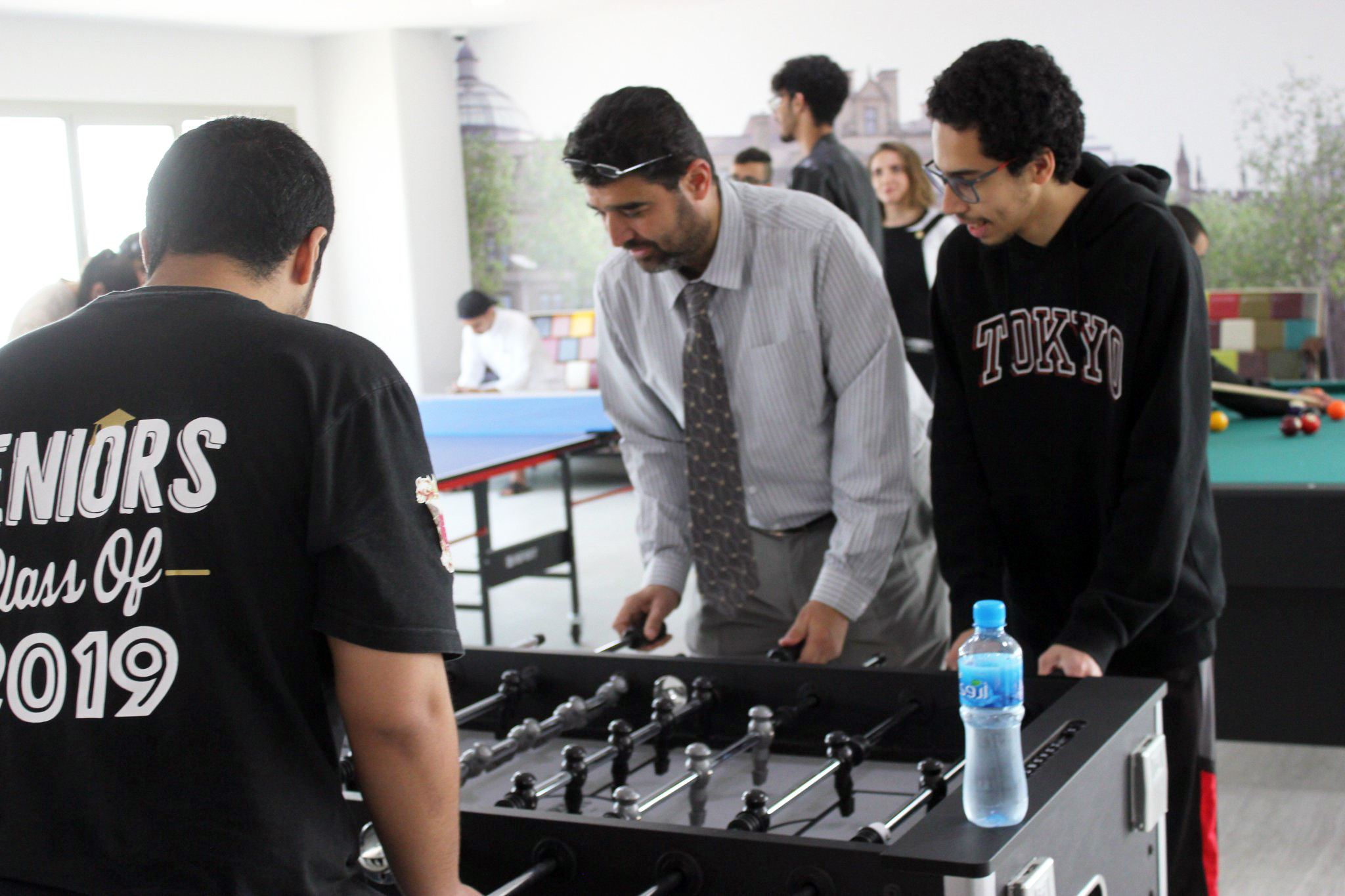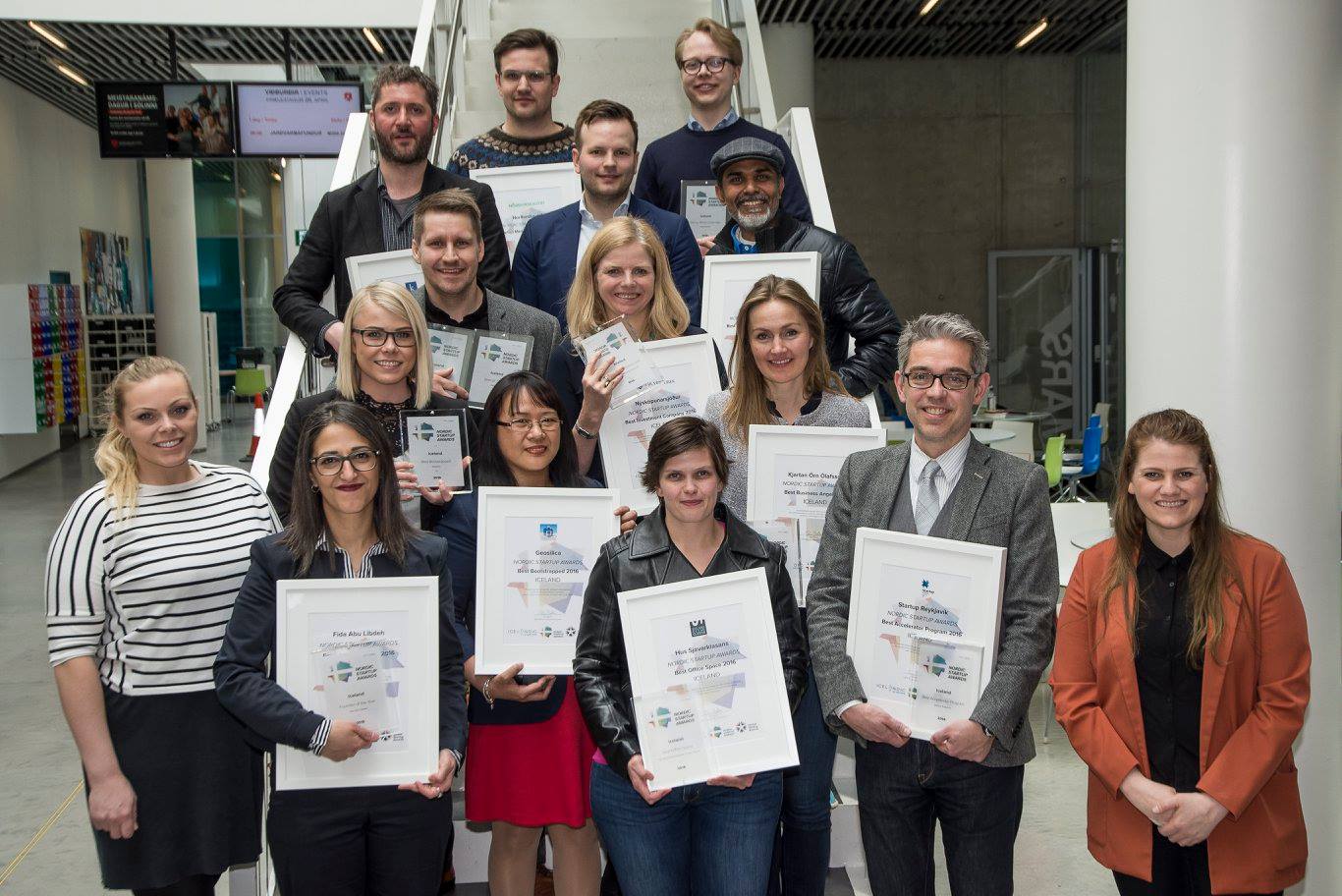THE SALFORD EXPERIENCE
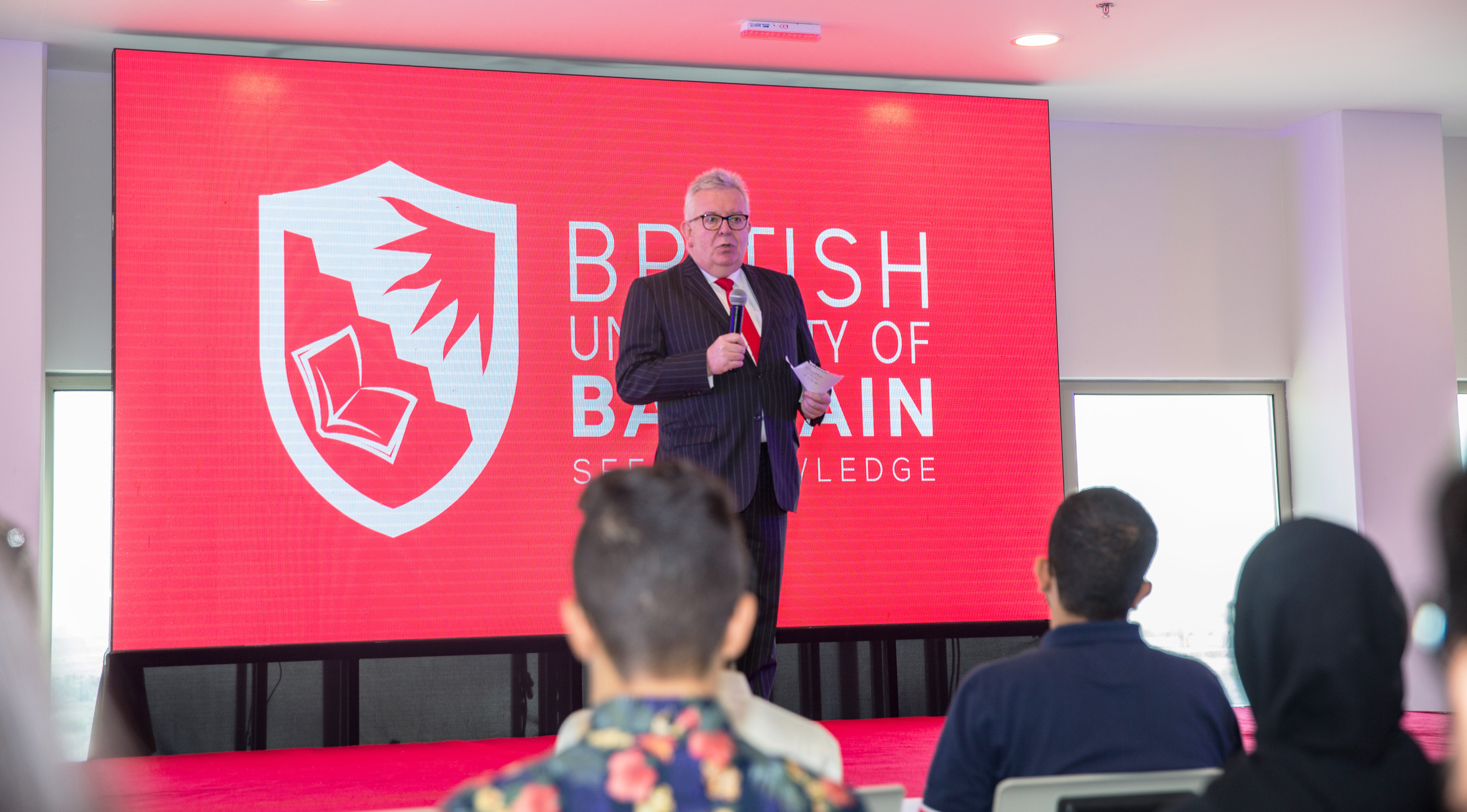
1. Please tell us more about BUB and its relation to the University of Salford, Manchester.
BUB was conceived as a new type of university in Bahrain. The underlying concept is to offer to students from Bahrain the opportunity to gain a degree from one of the UK’s leading universities without the need to leave home. The University of Salford was chosen as BUB’s partner because of its reputation for working closely with industries and providing degrees and a student experience that prepare students directly for the world of work. From the outset we worked closely with our colleagues from Salford to design a campus and a student experience that would allow us to bring the best of the Salford experience to Bahrain. All of our degrees are awarded by the University of Salford, all of our teaching staff have been jointly appointed by BUB and Salford and the programmes you study at BUB are identical to those being studied on Salford’s campus in Manchester.
2. What does your role as Vice-President of the University entail?
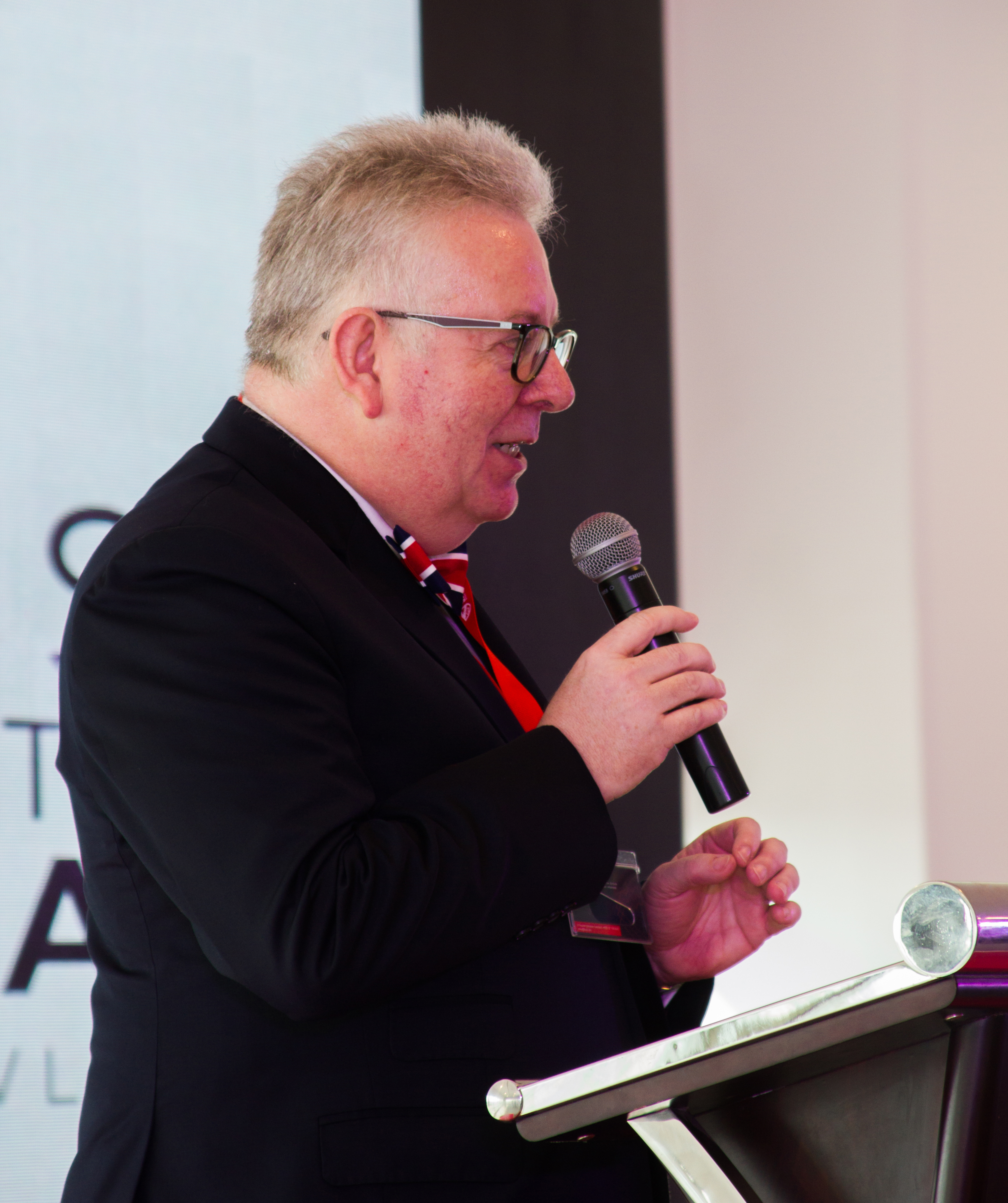 As Vice President I am responsible for the overall operation of the University and for formulating and delivering its future strategy. I report to our Board of Trustees, which includes the Vice Chancellor of the University of Salford and two of her senior colleagues. I also chair BUB’s Academic Board which is responsible for ensuring the quality and standards of education at BUB. As we are a new university, in practice I get involved in all sorts of other things, including teaching, meeting prospective students and their parents and liaising with the Ministry of Education and our industrial partners. I like to spend as much time as possible with our students who I find a constant source of ideas and inspiration.
As Vice President I am responsible for the overall operation of the University and for formulating and delivering its future strategy. I report to our Board of Trustees, which includes the Vice Chancellor of the University of Salford and two of her senior colleagues. I also chair BUB’s Academic Board which is responsible for ensuring the quality and standards of education at BUB. As we are a new university, in practice I get involved in all sorts of other things, including teaching, meeting prospective students and their parents and liaising with the Ministry of Education and our industrial partners. I like to spend as much time as possible with our students who I find a constant source of ideas and inspiration.
3. What is international education and how are the students at BUB benefiting from this?
International Education can mean a good many different things but at BUB it means bringing academic programmes from the UK and delivering them in Bahrain to exactly the same standard as they are delivered in Salford. For me, it is essential that our students at BUB are assessed in identical ways to their counterparts in Salford: this way we guarantee that the knowledge, skills and achievement levels of students studying in Bahrain are exactly the same as those studying in Salford. An important additional benefit of ensuring that BUB’s programmes are the same as those offered in Salford is that our students are able to transfer to Salford’s Manchester campus at any time during their studies. This means that opportunities for international experience are built in to our programmes from the outset.
4. Since you started a little over 2 years ago, what would you say have been the challenges of putting up BUB in Bahrain? Conversely what have been your major achievements?
Any new venture involves a set of challenges and starting a new university is no different. At BUB we benefited enormously from the experience of the University of Salford, but even with their vast experience behind us, we encountered some challenges. One of these was to explain to prospective students in clear and straightforward terms what BUB was trying to do and why it was important. Another was the introduction of programmes that had never been offered before in Bahrain. Even though our research showed very clearly that there was a huge local demand for these skills, we found that prospective students had often never heard of professions like Quantity Surveying and Construction Project Management. So we had to overcome this by explaining clearly what these professions entail, why there is such a large local demand for them and ultimately, the attractive salaries that graduates in these fields can expect to earn! Our major achievement so far has undoubtedly been the academic success and overall satisfaction of our first cohort of students – the group I call ‘the Pioneers’. We were fortunate to have attracted such an able and motivated first cohort who have really set the tone at BUB – both inside the classroom and their proactive engagement with a wide range of extracurricular activities.
5. What advice can you give to Bahraini students in terms of how they can move forward, innovate and thrive in today’s world?
Whilst academic knowledge is important, you also need to focus on developing skills, attitudes and habits which will give you the edge in the modern world of work. Leadership, teamwork, flexibility and the ability to solve problems and quickly acquire new knowledge and skills will all be valued by employers of the future. But increasingly I believe that qualities like the ability to reflect critically on oneself, to develop and refine one’s ‘emotional intelligence’, to think creatively and to display resilience tempered with humility will be the things that set apart the most successful from the rest.


